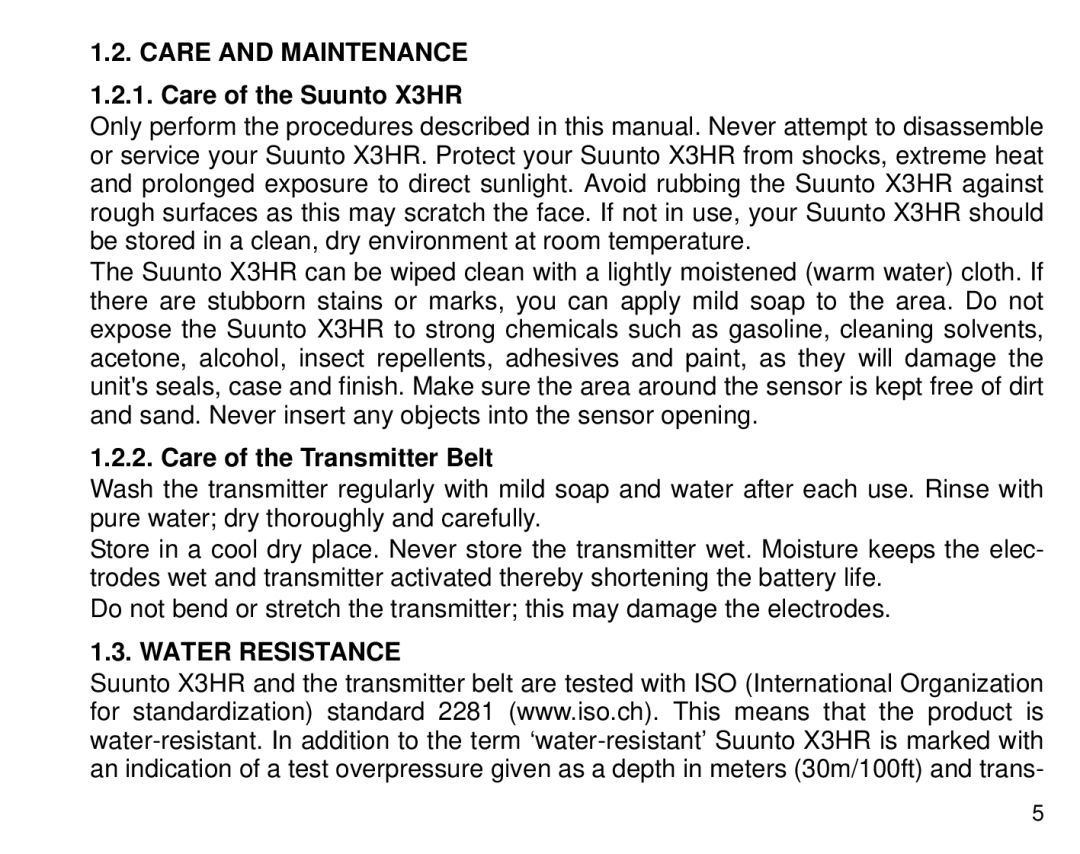1.2. CARE AND MAINTENANCE 1.2.1. Care of the Suunto X3HR
Only perform the procedures described in this manual. Never attempt to disassemble or service your Suunto X3HR. Protect your Suunto X3HR from shocks, extreme heat and prolonged exposure to direct sunlight. Avoid rubbing the Suunto X3HR against rough surfaces as this may scratch the face. If not in use, your Suunto X3HR should be stored in a clean, dry environment at room temperature.
The Suunto X3HR can be wiped clean with a lightly moistened (warm water) cloth. If there are stubborn stains or marks, you can apply mild soap to the area. Do not expose the Suunto X3HR to strong chemicals such as gasoline, cleaning solvents, acetone, alcohol, insect repellents, adhesives and paint, as they will damage the unit's seals, case and finish. Make sure the area around the sensor is kept free of dirt and sand. Never insert any objects into the sensor opening.
1.2.2. Care of the Transmitter Belt
Wash the transmitter regularly with mild soap and water after each use. Rinse with pure water; dry thoroughly and carefully.
Store in a cool dry place. Never store the transmitter wet. Moisture keeps the elec- trodes wet and transmitter activated thereby shortening the battery life.
Do not bend or stretch the transmitter; this may damage the electrodes.
1.3. WATER RESISTANCE
Suunto X3HR and the transmitter belt are tested with ISO (International Organization for standardization) standard 2281 (www.iso.ch). This means that the product is
5
